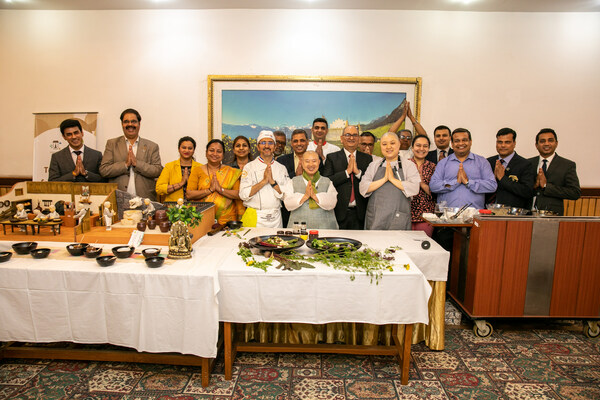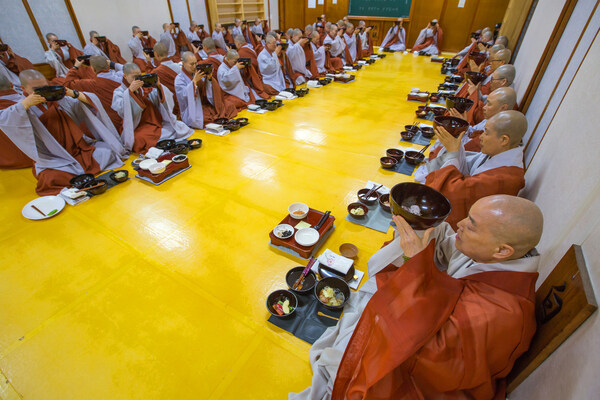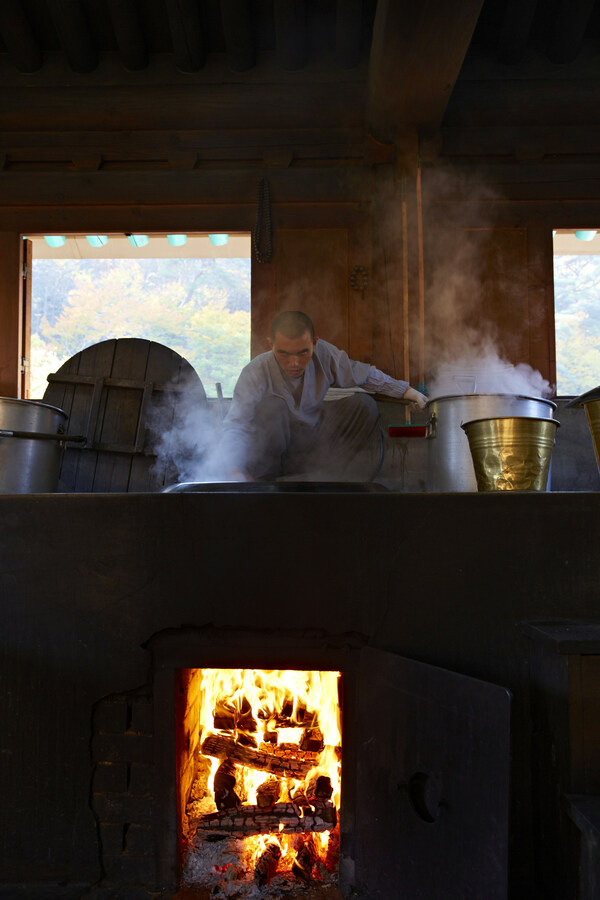- Le Cordon Bleu has been offering both online and offline lectures for three consecutive years.
- BCIHMCT in India and GD Goenka University - Le Cordon Bleu India hosted a temple food workshop and demonstration.
SEOUL, South Korea, Nov. 30, 2023 /PRNewswire/ -- The global fascination with Korean temple food, steeped in the wisdom of 1700 years of Korean Buddhism, continues to captivate enthusiasts worldwide. Several world-renowned culinary institutions, including Banarsidas Chandiwala Institute of Hotel Management and Catering Technology (BCIHMCT) in India, have offered workshops and demonstrations on temple cuisine. Le Cordon Bleu Paris and its London campus have been educating aspiring chefs through specialized vegetarian culinary courses with a focus on temple food for three years now. Interest in monks who perpetuate temple food, such as Buddhist nun Jeong Kwan, hailed as a Master of Korean Temple Food by the Jogye Order, Korea's largest Buddhist sect, is rapidly growing. Jeong Kwan gained recognition for her appearance on Netflix's 'Chef's Table' series.

Temple food workshop and demonstration at Banarsidas Chandiwala Institute of Hotel Management and Catering Technology (BCIHMCT) by the Buddhist nun Jeong Kwan
What drives global interest in temple food, and what sets it apart from simple vegetarian cuisine?
The burgeoning interest in temple food aligns closely with the increasing vegetarian and vegan population worldwide. As more individuals seek health-conscious and life-respecting dietary choices, the inclination towards plant-based diets naturally heightens interest in temple cuisine.
Temple food embodies harmony and closeness to nature, offering a pure, untainted taste free from artificial additives and animal-based seasonings. Employing fresh seasonal greens and vegetables, supplemented by mushrooms or beans instead of meat, temple cuisine caters to vegetarians. It emerges as a compelling dietary alternative in the present era of the climate crisis, contemplating humanity's future.
Temple food represents wisdom for a sustainable life through eco-friendly cultivation practices, a low-carbon meat-free diet, efficient ingredient usage in cooking, and the 'balwoo gongyang' practice, where a meal ceremony includes rice, soup, side dishes, and even water in one bowl, emphasizing the importance of finishing it all, thus minimizing waste.
Distinguishing itself from simple vegetarianism, temple food draws individuals concerned with not only physical health but also mental and spiritual well-being. As the diet of temple practitioners, it symbolizes more than mere sustenance. Temple cuisine respects every stage, from ingredient cultivation to meal preparation and consumption, honoring the dedication of all involved.
Furthermore, temple food transcends the concept of healthy eating for bodily functions; it nurtures and heals the mind and spirit. Embracing the vitality of nature within fresh ingredients fosters complete acceptance of all life forms and serves as a means of communication.
The profound interest in temple food among leading culinary schools worldwide arises from its contemplative reflection on spiritual elements, surpassing the act of eating alone.
For instance, Le Cordon Bleu has integrated temple food into its vegetarian culinary courses at Paris and London campuses for three consecutive years since 2020, offering both online and offline lectures.
In March this year, BCIHMCT in India and GD Goenka University - Le Cordon Bleu India hosted a temple food workshop and demonstration by Master Jeong Kwan. During the workshop, she emphasized, "Understanding the deep contemplation about life is essential to bring out the inherent flavors of ingredients, making it a practice in itself," which garnered praise from attending professors and students.
If you are interested in experiencing the essence of temple food in Korea, you may attend "Let's Learn Korean Temple Food," a weekly one-day class for foreigners every Saturday from 10 a.m. to 12 p.m. at the Korean Temple Food Center in Insadong, one of the famous tourist spots in Seoul.
For a more immediate experience, indulge in a meticulously prepared temple food course at "Balwoo Gongyang." Awarded the Michelin star for three consecutive years, Balwoo Gongyang presents seasonal menus with fresh, seasonal ingredients. How about embarking on a journey to Korea to nourish both body and soul with heartfelt autumnal cuisine.
Inquiries:
Let's Learn Korean Temple Food, Korean Temple Food Center
- Opening hours: every Saturday from 10:30 a.m. to 12 p.m.
- Cost: KRW 10,000
- Reservation: edu.koreatemplefood.com
- Telephone: +82-2-733-4650





